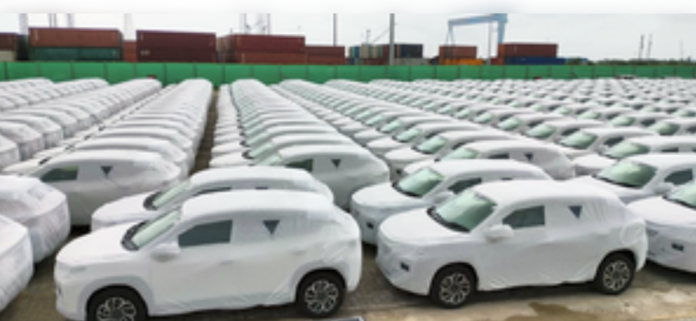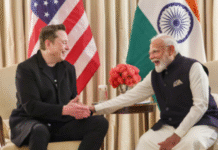New Delhi— India has the potential to triple its automotive exports to $60 billion by 2030, generate a $25 billion trade surplus, and create between 2 to 2.5 million direct jobs, according to a new government report released Tuesday. The move would position the country as a globally competitive, innovation-driven manufacturing hub.
India’s automotive industry is a key pillar of its manufacturing sector and overall economic growth, contributing 7.1 percent to the national GDP and accounting for 49 percent of manufacturing GDP.
As the fourth-largest automobile producer in the world, India has the scale and strategic advantage needed to emerge as a global leader across the automotive value chain, the NITI Aayog report stated.
In 2023–24, India produced over 28 million vehicles, underscoring the industry’s rapid expansion. The country currently holds a 3 percent share—approximately $20 billion—in the global market for auto components.
The report also highlights how electric vehicles (EVs) are reshaping global manufacturing. China produced more than 8 million EVs in 2023, while the European Union and the United States are ramping up adoption through mandates and subsidies. This shift is driving demand for advanced batteries, semiconductors, and high-tech materials.
Technological integration is transforming production processes worldwide. The report notes that global automakers are investing in smart factories powered by artificial intelligence (AI), the Internet of Things (IoT), robotics, 3D printing, and digital twins. Countries like Germany and South Korea are leading the charge in smart factory deployment.
Despite a strong domestic manufacturing base, India still accounts for just 3 percent of the global auto component trade, signaling vast untapped potential.
“The Vision 2030 roadmap aims to scale total production to $145 billion, boost exports to $60 billion, and create up to 2.5 million jobs,” the report said. “Government initiatives like FAME, PM E-Drive, and the PLI scheme have already mobilized more than ₹66,000 crore to support EV adoption and localization.”
With focused reforms and greater integration into global value chains, India could increase its share in global auto component trade from 3 percent to 8 percent by the end of the decade.
“With the right mix of ambition and execution, India can emerge as a globally recognized supplier of next-generation mobility solutions,” the report concluded. (Source: IANS)







